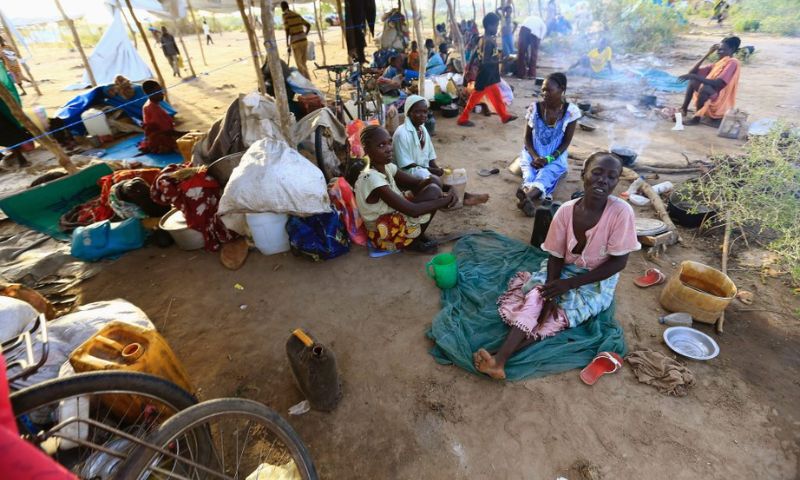NAIROBI: The Coordination of Humanitarian Affairs (OCHA) has said that about 1.4 million people have been displaced in Sudan since the conflict between two rival generals started in April, according to a new study released on Sunday by the United Nations Office.
Even before the violence began, Sudan had several million internally displaced people as a result of years of political turmoil. According to UNHCR data, the country also accommodated 1.13 million refugees from other conflict-ridden countries, including South Sudan, Eritrea, and Syria.
The current outbreak of violence has driven a new wave of people to flee their homes, either to other parts of Sudan or to neighboring countries. The latest estimate was based on data from several UN agencies.
According to the UN’s International Organisation for Migration’s (IOM) Displacement Tracking Matrix, more than 1 million people have been internally displaced in the country since the conflict began on April 15. According to the release, the number of newly internally displaced people over just over five weeks (15 April to 23 May) is similar to the total number of displacements recorded in the country from 2020 to 2022.
345,000 people had fled Sudan into neighboring countries
According to the United Nations High Commissioner for Refugees (UNHCR), a further 345,000 people had fled Sudan into neighboring countries such as Egypt, Chad, and Ethiopia as of May 26. The UN Population Fund said that, among the huge amount of displacement, there had been an increase in allegations of gender-based violence and domestic violence, particularly among internally displaced Sudanese people.
Reports of “sexual violence against women and girls, including allegations of rape, committed by the parties to the conflict,” according to Pramila Patten, the UN Special Representative of the Secretary-General on Sexual Violence in conflict, are also concerning.
The Sudanese Armed Forces (SAF) are at war with the Rapid Support Forces (RSF) in the current conflict. Fighting is continuing despite a seven-day ceasefire agreement brokered by Saudi Arabia and the United States on May 22. With the ceasefire set to expire on Monday, there are fears of additional escalation.
Thousands of foreign nationals have fled the country as Western and regional powers intervened to evacuate their own citizens, but thousands of families have risked perilous journeys from the capital Khartoum and other parts of Sudan, leaving them to fend for themselves or flee to neighboring poverty-str countries.
According to Sudan’s Federal Ministry of Health, at least 730 people have been killed and approximately 5,500 have been injured as of May 23. According to the UN, at least eight humanitarian workers and eight medical personnel have been killed since the violence began.
According to the Preliminary Committee of the Sudan Doctors’ Union, at least 850 people have been killed and 3,400 have been injured. According to the UN release, many deadly attacks have been reported in different parts of the war-torn country, and civilian infrastructure has been damaged, with reports of looting and unexploded bombs seen in urban areas.
According to the World Health Organisation, there have been at least 38 attacks on healthcare premises in Sudan since April 15. This includes, among others, 22 attacks on healthcare facilities, six attacks on warehouses, and nine attacks on supplies. According to WHO, more than 30 babies died in a hospital in Ad Du’ayn, East Darfur, including six infants, due to difficulties such as a shortage of oxygen and an electrical blackout.
According to the UN, looted homes, schools, banks, government institutions, and humanitarian locations have been reported in the western Sudanese town of Zalingi. Water and electricity supplies have been disconnected, and telecommunications services have been hindered.
According to the UN Mine Action Service, there are increasing reports of unexploded ordnance in Khartoum and other Sudanese cities, especially in buildings, roads, and roadside areas. According to the UN, humanitarian partners are working swiftly to get relief supplies to areas where they are most needed, but there are security and transportation challenges.
























